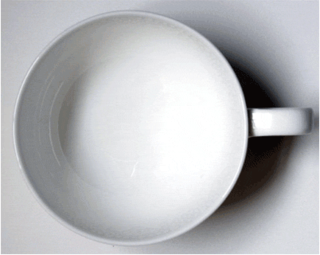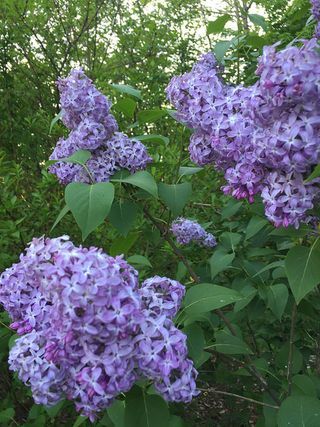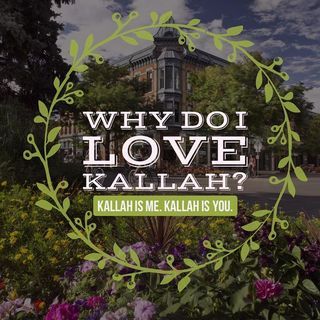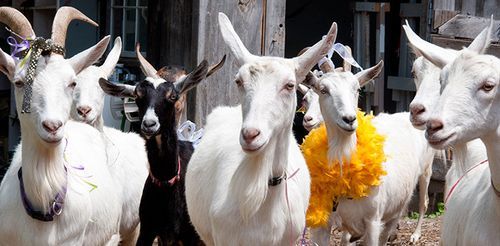Rachel Barenblat's Blog, page 104
June 14, 2016
Mourning the massacre in Orlando
I'm home from an extraordinary three day Shavuot retreat at Isabella Freedman Jewish Retreat Center, about which I hope to write more soon. For now I am struggling, as are we all, to assimilate my fury and my grief at the horrific shooting at Pulse, a queer nightclub in Orlando, Florida, which took place on the first morning of Shavuot.
ALEPH just put out a response to the shooting -- a short statement (which I will enclose below) and a beautiful new liturgical poem written by my co-chair:
ALEPH: Alliance for Jewish Renewal, expresses horror, shock and grief for the victims of Sunday’s shooting at the Pulse nightclub in Orlando, Florida. We stand with all – LGBTQA or straight, Christian, Jew or Muslim – whose hearts break for the victims, for their loved ones, for a community’s peace shattered, for hope and safety shaken, for rights and dignity trampled, and for political rhetoric arousing religious hatred in its wake. We fervently pray to heal the injured, and we re-dedicate our hearts and hands to building a world in which the twin scourges of violence and hatred end.
In grief and solidarity, we offer this liturgical poem by Rabbi David Evan Markus for use in vigils and prayer services. May the Source of Peace bring comfort to all who mourn, and inspire all to build an ever more just world, speedily and soon.
The poem is offered for public use -- if it speaks to you, please feel free to use it aloud and to share it widely: The Pulse of Revelation, by Rabbi David Evan Markus.

After Sinai
For three glorious days
I'm with you on the mountain.
Face to face with your radiance
I remember how to shine.
I am seen. I open in places
I didn't know had been closed.
And then it's over. Even
in a crowd I feel alone.
I miss your voice so much
my own throat closes.
What I wouldn't give to be
in your sweet presence again.
For three glorious days. Torah teaches that the revelation at Sinai took place after a three-day period of preparation (Exodus 19). Face to face. God spoke to Moshe face to face (Exodus 33). I remember how to shine. When Moshe came down from Sinai he was radiant (Exodus 34).
This is another poem in my Texts to the Holy series.

First fruits and flow
A d'var Torah written for the second day of Shavuot at Isabella Freedman, for after the bikkurim / first fruits parade. I wound up speaking extemporaneously, but what I said more or less followed this outline.
When we enter into the land we are to bring the first fruits of our harvest to the place where God's presence dwells, teaches the Torah. After we affirm where we are, we recount how we got here. Our ancestors wandered into the land of Egypt, and in time were oppressed there. We cried out to God, and God heard our cries and brought us out from there with a mighty hand and an outstretched arm, and brought us to this very place, a land flowing with milk and honey.
When we enter into the land --
Today I don't think those words can mean only the land of Israel. They can't refer only to what happened then and there. That may be what they used to mean, but we learn in Pirkei Avot (as Rabbi David mentioned on Shabbat morning) that "every day a heavenly Voice issues forth from Mt. Horeb" -- the revelation of Torah is ongoing, and it's our obligation to find new ways to interpret so that the Voice continues to speak in ways that can be heard.
I like to think that "when we enter into the land" can mean the landscape of the human heart, the interior landscape in which we each find ourselves this year. The season is turning. What new doorway are you walking through as summer approaches?
Granted, I don't want to overlook the land on which we stand today, or to say that the pasuk is only about interior journeying. Whether you call this place Isabella Friedman, or Elat Chayyim, or Hazon, it is indeed a land of beauty and abundance. But most of us who experienced this morning's parade of first fruits did not grow or harvest in these fields, and did not tend to these flocks. This is a borrowed land of milk and honey, and while it is a perfect spot for a pilgrimage, we will all have to go home when Shavuot is over.
Of course, so did our Biblical ancestors. That's why these three great pilgrimage festivals are called regalim -- from regel, foot, because we traveled to get there, and then we traveled home again. We here today drove in cars or took trains or perhaps flew to get here, and "here" is northern Connecticut rather than Jerusalem, but in a deeper sense we are walking precisely in our ancestors' footsteps. At least as far as the pilgrimage part is concerned.
The first fruits of our harvest --
What harvest did each of us bring here today? The farmers from Adamah may have the most obvious answer, but I think that they too are bringing intangible offerings, as are we all.
That can't just mean the radishes we've grown or the goats we've reared. Of course those are first fruits, and they are beautiful. But the teaching has to be deeper than that. What about the fruits of your intellectual harvest, the ideas and teachings you've taken in and made your own? For those who are ending a school year soon, whether as students or as teachers, what thoughts can you harvest to offer on the altar? What about emotional harvest, the wisdom not of your mind but of your heart?
The place where God's presence dwells --
By now you can probably intuit what I'm going to say about that: God's presence may be extra-palpable here. We are in a beautiful place. We are in a place that has been sanctified by many retreats and pilgrimages. We join together in co-creating the container for the sacred space of this festival, and that makes this a holy place. Mah nora hamakom hazeh: how awesome is this place!
But the Presence is everywhere. Shechinah is everywhere. Havayah, the One Who accompanies us, is everywhere. God's presence dwells with us wherever we go.
How we got here --
Our ancestors wandered and struggled. We ourselves have wandered and struggled. We have known constriction and sorrow, tsuris, Mitzrayim, "the narrow place." It takes many forms: tight fiscal straits, painful situations, difficult or abusive relationships, depression, loss, grief.
Every one of us has been in these straits. Every one of us has cried out -- whether to that One we name as God, or to the universe, or to a loved one, or to the echoing silence -- pleading for life to be different. And hopefully every one of us has known what it is like to be lifted out of that place.
And even if we return to those narrow straits, maybe the fact of having been lifted up can sustain us, because we know that life won't always be narrow. That if we were lifted up once, we can be lifted up again.
A land flowing with milk and honey --
There are plenty of midrashic interpretations of this phrase, and I'm not going to talk about any of them. As a poet, here's what this phrase says to me. Milk is our first food in this life. It represents nourishment not only physical but also emotional and spiritual. It calls forth an image of God as Mother, the One in Whose womb all of creation is nurtured.
And honey -- honey is sweetness, plain and simple. Sweetness isn't an essential nutrient. The body doesn't need it in order to live. But our hearts and souls crave sweetness in the emotional and spiritual realms. We can survive without sweetness, but we yearn for more than mere survival.
And the milk and honey promised by Torah aren't merely present: they flow. When we give of ourselves freely, when we place our internal first fruits on the altar of the heart, we prime the pump for divine flow into our lives. We open our channels so that grace and abundance can flow into us and through us. When we give, we open ourselves to be able to receive.
May the coming summer be a season of milk, nurturing and nourishing. May it be a season of honey, the extra oomph that transforms life from livable to truly worth living. May it be a season of opening ourselves to divine flow. And may God's abundant blessing flow not only into us but also through us, so that we may be conduits for blessing, so that we may irrigate the thirsty world with compassion and with kindness and with peace.

June 7, 2016
Morning blessing
When I have the luxury
of unhurried minutes with you
hands wrapped around
my morning mug of coffee
(flowing with milk and honey
because you are with me)
the sky becomes clearer, my heart
lighter, the road before me
streaked with joy
sings me a new song.
Flowing with milk and honey. Torah describes the land of promise in these words.
[B]ecause you are with me. This echoes Psalm 23, verse 4, "For You are with me."
[S]ings me a new song. Psalm 96 instructs us to sing unto God a new song, but this poem imagines all of creation singing a new song to me -- or perhaps singing it together with me, because after deep connection, my heart cannot help but sing.
This is another in my ongoing Texts to the Holy series.

June 5, 2016
Yearning and revelation
Torah comes in many forms. There's written Torah and oral Torah and the Torah of lived human experience.
Revelation comes in many forms, too. Maybe, like the poet Rainier Maria Rilke, you see a piece of art and realize what fades and what endures, and you come away certain that you must change your life. Maybe you're out for a jog when you realize that the pastime you've been enjoying, the one that makes you happy outside of your job, is actually the thing you feel called to be doing as your paying work. Maybe you hear a piece of music and it moves you, and then the melody reverberates in your heart, opening up depths of feeling you hadn't known you were missing.
Revelation isn't just the things we learn, or realize, or recognize. It's how we allow those things to change us.
The Sinai moment is our people's quintessential experience of revelation. Some say that God's own self was revealed to the people on that day. And midrash (Exodus Rabbah) teaches that God's voice divided itself into 70 human languages so that everyone might understand it. Everyone who was there, regardless of age or social station, heard God's voice in a way that they could understand. So can we.
The thing is, revelation doesn't just flow on Shavuot. On Shavuot perhaps the cosmos is aligned in a way that might make it easier for us to receive. Everything we do on that day is designed to open us more deeply to what's coming through. But the divine broadcast is ongoing even when it isn't Shavuot.
Revelation happens in the body. A friend of mine who's a massage therapist likes to say "the body is our God" -- by which I think she means something like, our bodies can be conduits for revelation. Is there something happening at your workplace that ties your stomach in knots? Is there someone in your life who makes your whole being feel bubbly like champagne? Our bodies speak, if we listen.
Revelation happens in the heart. Think of the person you love most in the world, and imagine that they're right here in front of you. That upwelling in your heart is a kind of revelation. Feelings of joy can be a revelation -- especially after long periods of grief. Gratitude can be a revelation.
Revelation happens in the mind. The idea that sets your mind on fire, consuming your waking hours and maybe your sleeping ones too. The flash of insight or new understanding. The book you read that opens your horizons and changes your life. Sparking across the synaptic connections of the brain, there can be revelation.
And revelation happens in spirit. Not just in the experience of prayer that transports you, though I am always grateful for such davenen. When we open ourselves to divine flow in our lives: that's revelation. When we seek the Presence of Havayah, the One Who Accompanies, in all things: that's revelation.
Reb Zalman, of blessed memory, used to say that God broadcasts on all channels and we receive where we are attuned.
I'm not very good at receiving revelation in my body -- I have to remind myself to pay attention to the messages my body is conveying -- but I've made a practice of opening myself to revelation through my heart. You will know which channels are most open for you.
If revelation can flow at any time, what can we do to cultivate receptivity, to attune our psycho-spiritual antennas to that broadcast? The best tool I know for cultivating receptiveness to revelation is opening myself to yearning.
Most of the time I go through life focused on my to-do lists. As do we all. We have jobs and obligations, parents to care for or children to raise, volunteer work and board service, not to mention the laundry, the groceries, and the bills. But each Shabbat, and each festival, invites us to set all of that aside for a time. When I set weekday and workday aside, what I feel is yearning.
In many classic musicals, early in the first act there's the "I Want" song. The protagonist opens up to the audience and sings out the deepest yearning of their heart. That's what sets the plot in motion. That's what sparks their changes and allows them by the end of the show to get what they were looking for. What's your "I Want" song? What do you yearn for?
I yearn for a life more whole and more complete. I yearn for connection with the Holy One of Blessing. I yearn for divine flow into and through my life. I yearn to be seen and to be known fully, by God and by human beings. I yearn for justice. I yearn for healing. I yearn to be able to make a difference. I yearn for a world redeemed.
When I open myself to my yearning, I'm letting down the armor that protects me from disappointment. Most of the time I need that armor, at least a little bit. But I need to be willing to be vulnerable in order to talk to God. And more than that: I need to be willing to be vulnerable, to open myself to my yearning, to hear God speaking back to me.
When I open myself to my yearning, that's when my poems come through. Like this one (another in my Texts to the Holy series):
Orange daylilies stand,
their crowd of upturned faces
gazing at the sun.
My heart knows that yearning.
Every cell in my body
calls out for you.
Night falls: my petals close.
I hug myself, bereft.
I count the hours until dawn.
I am most beautiful
when your radiance
draws forth mine.
What draws forth your radiance? What makes you shine, as Moshe shone when he came down from the mountain?
What might your yearning reveal to you about the world as you most dream it could be? And are you willing to allow yourself to be changed: by opening up to your deepest yearnings, and by letting yourself hope that they might come true?
The festival of Shavuot will begin as the coming Shabbat ends, tomorrow night at sundown. Shabbat shalom and chag sameach / a joyous festival to all who celebrate.

The spiritual call to empty one's cup
 The last Torah portion in the book of Leviticus, Bechukotai, begins with an if/then: "If you follow My engraved-commandments and faithfully observe My connective-commandments..."
The last Torah portion in the book of Leviticus, Bechukotai, begins with an if/then: "If you follow My engraved-commandments and faithfully observe My connective-commandments..."
If we allow God's commandments to be engraved upon our hearts, and if we guard the mitzvot and keep them close to us, then a lot of good things will come to pass, says Torah, including good rains and good harvests and peace in the land. But the promise that leapt out at me this year was "you will eat old grain long stored, and you will have to clear out the old to make room for the new."
What does it mean to eat old grain long stored? To me this evokes what we've set aside for the proverbial rainy day. Torah seems to be suggesting that if we keep the mitzvot, if we allow them to work on us and perhaps even change us, we will feel safe consuming the resources we set aside. Because an abundant flow of new blessings will be waiting to come our way, and we won't be able to receive those blessings until we make room for them.
Maybe some of you know the Buddhist parable of Nan-in and the teacup. Nan-in was a Buddhist monk, and someone came to him to learn the wisdom of Buddhism. Being a good host, he served tea to his visitor. He filled his visitor's cup and then kept pouring the tea, so that it overflowed. The visitor leapt up, angry, and demanded to know why Nan-in was making such a mess. "You are like this teacup," said Nan-in. "Your mind is already full of what you think you know. How can I pour in the wisdom you seek unless you first empty your cup?"
Sometimes spiritual life demands that we empty our granaries, that we empty our cup: that we let go of our certainties and allow new possibilities to change us.
Notice this, though: Torah isn't saying that if we have trust in the abundance that is coming, then we'll be able to do the mitzvot. Doing the mitzvot comes first. Act first, and trust will follow. And even if it doesn't, act as though it does. Do the mitzvot, and then take the leap of faith of trusting that abundance is coming. The first thing we're asked to do is to practice mitzvot. The second is to trust that the universe will repay us with shefa, with the boundless flow of blessing.
This isn't investment advice -- Torah isn't telling us to burn our savings because if we follow the mitzvot we'll be rewarded with riches. This is spiritual counsel. If we take on what our tradition calls ol malchut shamayim, "the yoke of the kingdom of heaven" -- if we accept the mitzvot upon ourselves -- then God will ask us to take a leap of faith and to trust that good things are coming.
The word malchut, often translated as kingdom or sovereignty, has another meaning. To our mystics, malchut connotes Shechinah, the immanent indwelling Presence of God. Those of us who have been counting the Omer may have noticed that the seventh day of each week of the Omer is considered a day of malchut, a day of Shechinah's presence. When we take on the mitzvot, we're not just accepting the yoke of the kingdom of heaven. We're accepting the enfolding embrace of the Shechinah.
And when we know ourselves to be enfolded in God's loving presence -- when we know that we are loved by an unending love, when we can feel the connection of that loving presence wherever we go and whatever we do -- then we can take the leap of faith that spiritual life demands. Then we can trust that there will be abundance in our lives and in our hearts.
This is the d'var Torah I offered yesterday morning at my shul. (Cross-posted to my From the Rabbi blog.)

May 31, 2016
New on The Wisdom Daily: a meditation on divorce
 I have a new essay at The Wisdom Daily. Here's a glimpse:
I have a new essay at The Wisdom Daily. Here's a glimpse:
I’m in the process of moving through a divorce, and that means I’m in the process of moving. This summer I’ll leave the house that my partner and I shared, and move to a place of my own. Right now I’m taking the first steps toward that shift: beginning the work of winnowing and packing.
Sometimes this work is satisfying. It gives me an excuse, for instance, to let go of extra dishes and pots and pans. I’m filling boxes for Goodwill, and with every item I discard I feel less encumbered (and also virtuous — it feels good to know that someone else will get use out of things I’m releasing).
Other times, this work is grief-inducing. In the middle of poking through my winter clothes to decide which things I actually wear and should therefore keep, I run across the sweater I bought for myself on the Isle of Skye on my honeymoon eighteen years ago, and suddenly I’m weeping into the wool.
Read the whole thing: Moving On: A Meditation on Divorce.

May 29, 2016
Spring

When I remember you
my fingertips tingle.
I'm a lilac, petals
prickling to spring free.
Yearning tangles my tongue.
My words become fragrance.
My heart overflows
like a wadi after a storm.
The thought of you
nourishes me, dizzies me.
Breathe into me
and I bloom.
I know I just posted one of the poems in my Texts to the Holy series, and I don't usually share two in rapid succession, but I wanted to share this one while the lilacs in my backyard are still in flower.
My words become fragrance. In Jewish mystical tradition fragrance often evokes Shechinah, the immanent, indwelling, feminine divine Presence.
The thought of you / nourishes me, dizzies me. See Song of Songs 1:2, טוֹבִים דֹּדֶיךָ מִיָּיִן -- "your love is better than wine."
Breathe into me. See Elohai Neshama (or my variation thereupon in Open My Lips.)

May 27, 2016
Distant
I can't see you, can't touch you
can't breathe, because without you --
but I'm never without you. Even
when all I am is ache.
Especially then. Press my fingers
to the delicate bones of my wrist
and there you are, accompanying me
with every beat of my yearning heart.
I can't offer a citation for the idea that God is as close to us as the rhythm of our own hearts, but it is a teaching from which I draw substantial comfort. Sometimes the distance between us feels unbearable, and then I remember it's illusion and there isn't really any distance between us at all.
This is the latest poem in my Texts to the Holy series.
Shabbat shalom to all who celebrate.

May 25, 2016
Register now for the ALEPH Kallah!
 The ALEPH Kallah -- July 11-17 in Fort Collins, CO -- is coming up soon. Register by 11:59pm eastern time on June 3; starting at midnight on that night, a 10% late registration fee will be added. (Also, the longer you wait, the likelier it is that the classes you want to take will fill up without you.)
The ALEPH Kallah -- July 11-17 in Fort Collins, CO -- is coming up soon. Register by 11:59pm eastern time on June 3; starting at midnight on that night, a 10% late registration fee will be added. (Also, the longer you wait, the likelier it is that the classes you want to take will fill up without you.)
The Kallah is an incredible opportunity to experience the richness of Jewish Renewal. There's learning to stimulate the mind, all kinds of davenen to uplift the heart, and -- maybe best of all -- the opportunity to immerse in a community of like-minded spiritual seekers for a week.
Here's a full listing of classes and workshops.
Here's information on the teen and kids' Kallah. (My son will be attending the kids' Kallah this year -- I'm really excited about it.)
Here's a list of Frequently Asked Questions.
Here are some of my posts about the most recent Kallah in 2013: Five glimpses of the start of Kallah; Five more glimpses of Kallah; A delicious mikveh before Shabbat... with a few surprises; Welcome home to a place where you've never been. (If you go further back via my ALEPH Kallah tag, you'll find posts from previous Kallot in 2011 and 2009.)

Rachel Barenblat's Blog
- Rachel Barenblat's profile
- 6 followers




